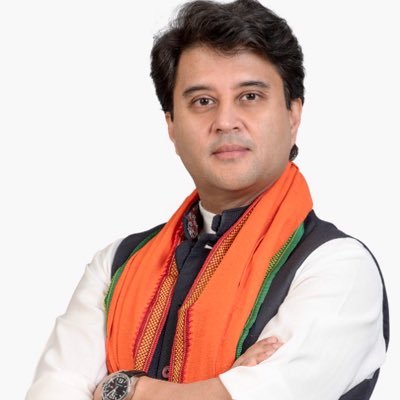New Delhi, NFAPost: Ministry of Civil Aviation (MoCA), under the leadership of Jyotiraditya Scindia, on Thursday released the updated – The Drone Rules, 2021 for public consultation.
Built on a premise of trust, self-certification, and non-intrusive monitoring, The Drone Rules, 2021 will replace the UAS Rules 2021 (released on 12 March 2021). The last date for receipt of public comments is 5 August 2021.
The government came up with new drone policy in the aftermath of certain security issues raised by Indian military and intelligence agencies. But at the same time government had to factor in growing momentum globally happening in drone technology supported by startups in logistics and other used cases in surveillance, agriculture and mapping.
Commenting on the new initiatives, Civil Aviation Minister Jyotiraditya M. Scindia said drones are bringing the next big tech revolution around the globe with reduced costs, resources and time taken for operations.
“It is upon us to ride on the new wave and facilitate its uptake, especially among our startups. Way to go,” said the Minister via Twitter.
Besides no security clearance required before any registration or licence issuance, Jotiraditya M. Scindiahe said Draft Drone Policy envisages minimal paperwork for R&D entities, easy process for transfer and deregistration of drones and no pilot licence required for micro drones (for non-commercial use), nano drone & for R&D organisations.
Key takeaways from the Draft Drone Rules, 2021 include:
Approvals abolished: unique authorisation number, unique prototype identification number, certificate of conformance, certificate of maintenance, import clearance, acceptance of existing drones, operator permit, authorisation of R&D organisation, student remote pilot licence, remote pilot instructor authorisation, drone port authorisation etc.
Number of forms reduced from 25 to 6.
Fee reduced to nominal levels. No linkage with the size of the drone.
Safety features like ‘No permission – no take-off’ (NPNT), real-time tracking beacon, geo-fencing etc. to be notified in future. A six-month lead time will be provided for compliance.
Digital sky platform shall be developed as a business-friendly single-window online system.
There will be minimal human interface on the digital sky platform and most permissions will be self-generated.
Interactive airspace map with green, yellow, and red zones will be displayed on the digital sky platform.
Yellow zone reduced from 45 km to 12 km from the airport perimeter.
No flight permission required upto 400 feet in green zones and upto 200 feet in the area between 8 and 12 km from the airport perimeter.
No pilot licence required for micro drones (for non-commercial use), nano drone and for R&D organisations.
No restriction on drone operations by foreign-owned companies registered in India.
Import of drones and drone components to be regulated by DGFT.
No security clearance required before any registration or licence issuance.
No requirement of certificate of airworthiness, unique identification number, prior permission and remote pilot licence for R&D entities.
Coverage of drones under Drone Rules, 2021 increased from 300 kg to 500 kg. This will cover drone taxis also.
All drone training and testing to be carried out by an authorised drone school. DGCA shall prescribe training requirements, oversee drone schools and provide pilot licences online.
Issuance of Certificate of Airworthiness delegated to Quality Council of India and certification entities authorised by it.
Manufacturer may generate their drone’s unique identification number on the digital sky platform through the self-certification route.
Easier process prescribed for transfer and deregistration of drones.
Standard operating procedures (SOP) and training procedure manuals (TPM) will be prescribed by DGCA on the digital sky platform for self-monitoring by users. No approvals required unless there is a significant departure from the prescribed procedures.
Maximum penalty under Drone Rules, 2021 reduced to Rs 1 lakh. This shall, however, not apply to penalties in respect of violation of other laws.
Drone corridors will be developed for cargo deliveries.
Drone promotion council to be set up to facilitate a business-friendly regulatory regime.





